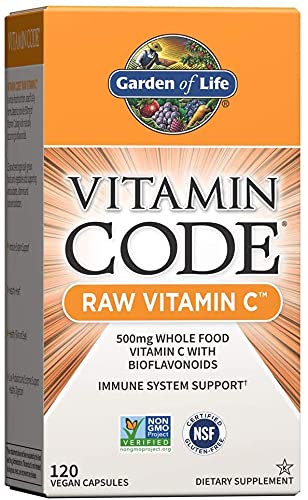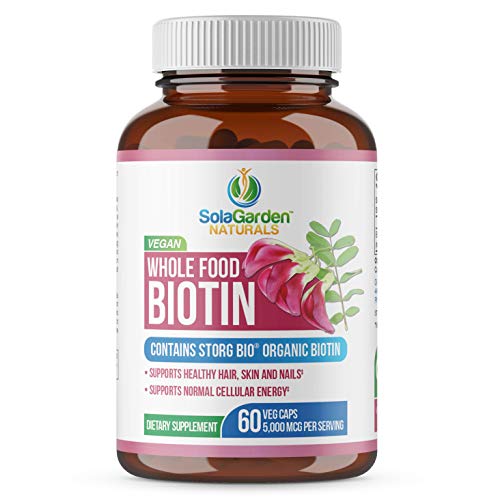Seborrheic dermatitis is a common skin condition characterized by red, itchy, scaly patches that can develop on the face, scalp, neck, and chest. The cause of seborrheic dermatitis is unknown, but it is likely caused by a combination of internal and external factors.
There is a great deal of debate surrounding the role that various vitamins and minerals play in the development and treatment of seborrheic dermatitis (SD). However, it is generally accepted that SD is associated with deficiencies in Vitamins A, C, D or B vitamins. SD may also be exacerbated by zinc, selenium, iron or essential fatty acid deficiency.
Let’s take a deep dive:
- Importance of vitamins and minerals for skin health
- Can seborrheic dermatitis be caused by vitamin deficiency?
- Dandruff and vitamin deficiency
- Vitamin D deficiency
- Vitamin C deficiency
- Vitamin A deficiency
- Vitamin B1, B2, B6, B12 and niacin deficiency
- Biotin deficiency
- Zinc deficiency
- Iron deficiency
- Selenium deficiency
- Essential fatty acids deficiency
- To wrap up
Importance of vitamins and minerals for skin health
Our skin is the outermost layer of our body and is responsible for protecting us from the environment. It is also our first line of defense against infection. The health of our skin depends on a number of factors, including diet, sun exposure, age, and genetics.
One important factor in maintaining healthy skin is getting enough vitamins and minerals. A deficiency in any one vitamin or mineral can lead to a variety of skin problems. Some common deficiencies include vitamin B12, biotin, zinc, selenium, and vitamin D.
Fortunately, it’s easy to get the nutrients your body needs to maintain healthy skin by eating a balanced diet rich in fruits and vegetables. If you are not getting enough vitamins and minerals from your diet alone, you may need to take supplements to ensure that your skin stays healthy.

Can seborrheic dermatitis be caused by vitamin deficiency?
Vitamin B2, B6, and zinc are essential vitamins for healthy skin and a deficiency may impair your skin integrity, putting you at risk of a seborrheic dermatitis flare. Deficiency of B vitamins and vitamins A, E, D and C may play a role in the development of seborrheic dermatitis. Niacin, another form of vitamin B6, has also been linked to seborrheic dermatitis. More research is needed to determine if vitamin deficiencies are actually a cause of seborrheic dermatitis. However, if you find it difficult to control your SD, it’s worth checking to see if you are vitamin or mineral deficient.
Dandruff and vitamin deficiency
Dandruff is essentially scalp seborrheic dermatitis and can be caused by a variety of factors including a deficiency in certain vitamins and minerals. Vitamins B and D are essential for the healthy growth and development of the hair follicles, so it’s important to make sure you’re getting enough of them.
Vitamin D deficiency
Vitamin D is a fat-soluble vitamin that helps regulate the body’s calcium and phosphorus levels. It is essential for the absorption of other nutrients. Vitamin D may play a role in the prevention of some types of cancer, as well as heart disease.
It is now known that vitamin D deficiency can worsen seborrheic dermatitis. Most recently, a 2021 study found that people with seborrheic dermatitis were much more likely to have a vitamin D deficiency than those without the condition. Vitamin D is essential for the body to manufacture keratin, the protein that makes up skin and hair. When vitamin D levels are low, the body tries to compensate by producing more sebum, an oily substance that helps keep the skin moist. And we know too well that lots of sebum leads to oily skin and aggravation of SD.
Interestingly, SD isn’t the only skin condition that has been linked to vitamin D deficiency. Other conditions include psoriasis and eczema. In fact, Vitamin D plays a vital role in a healthy immune system. As SD is caused by a hyper-reactive immune system and is potentially autoimmune in nature, this is one of the most important vitamins to make sure you have enough of. Vitamin D can be obtained from sunlight, fatty foods, or supplements.
What foods contain Vitamin D?
There are many foods that contain Vitamin D. Some of the most common sources are:
- Fish, such as salmon and tuna
- Eggs
- Milk
- Cheese
- Other fortified dairy products
Best Vitamin D supplements
There are a lot of different Vitamin D supplements on the market, and it can be hard to know which is the best one for you. Look for Vitamin D3 (cholecalciferol) as it is better than D2 supplementation. Vitamin D3 can be sourced from plants, cod liver oil or lanolin so if you are vegan, make sure you know where your vitamin D is coming from.
Vitamin C deficiency
When it comes to vitamins and minerals, many people are aware of the importance of Vitamin C. This water-soluble vitamin is essential for many bodily functions, including immune system support, collagen production, and wound healing.
Vitamin C is essential for the skin to function properly. There are no studies looking at the link between Vitamin C deficiency and seborrheic dermatitis but this vitamin is a dermatologist favorite for good reason. Adequate levels of Vitamin C is vital for skin health so it’s not surprising that a deficiency may aggravate SD.
What foods are high in Vitamin C?
While Vitamin C can be found in a variety of foods, some are higher in this nutrient than others. These common foods are known to be high in Vitamin C:
- Bell peppers: All colors of bell peppers contain significant levels of Vitamin C—even more so than oranges!
- Broccoli: One cup of broccoli provides almost 85% of your daily recommended intake of Vitamin C.
- Brussels sprouts: Just one cup contains more than 150% of your daily recommended intake!
- Kale: With nearly twice the amount as spinach, kale is an excellent source of Vitamin C.
- Papaya: Papaya is not only a good source of Vitamin C; it also contains papain, an enzyme that helps digest protein.
- Strawberries: One serving (about eight strawberries) gives you more than 100% of your daily recommended intake
Best Vitamin C supplements
If you feel like you need additional supplementation, there are many different brands and types of supplements available on the market.
The best Vitamin C supplements are those from whole foods and ones with bioflavanoids to aid absorption.
Vitamin A deficiency
While it is uncommon, vitamin A deficiency may aggravate seborrheic dermatitis. People with low vitamin A levels could experience itching, dryness and scaly skin. Fortunately, serious vitamin A deficiencies are rare in developed countries. They are most often seen in seniors who don’t eat enough food or because their bodies don’t absorb nutrients as well as before. However, any person can be at risk for a deficiency if they don’t get enough of this nutrient from their diet.
Foods high in Vitamin A
These foods are high in vitamin A:
- Carrots (Read about my carrot experiment)
- Sweet potatoes
- Spinach
- Kale
- Mango
- Papaya
Best Vitamin A supplements
If you hate carrots or you’re looking for a good way to provide your body with enough Vitamin A, then consider taking a vitamin A supplement.
Further reading: Role of vitamin A in seborrheic dermatitis
Vitamin B1, B2, B6, B12 and niacin deficiency
Studies have shown that patients with seborrheic dermatitis are more likely to be deficient in certain vitamins and minerals, including vitamin B1, B2, B6, and B12 as well as niacin.
In fact, a study on 25 infants with generalized seborrheic dermatitis found that treatment with intravenous B complex, biotin or both improved SD in all infants within 4 to 8 days.
Vitamin B6 is important in the regulation of sebum production and helps keep your skin moisturized but not oily. Topical niacimide (derivative of Vitamin B3/ niacin) is used as a topical treatment for seborrheic dermatitis.
Low levels of any of these B vitamins may lead to SD outbreaks. Fortunately, it’s relatively easy to get the recommended daily allowance (RDA) of these vitamins by eating a healthy diet.
Foods high in B vitamins
Foods like poultry, eggs, fish, dairy products and whole grains are all good sources of B vitamins:
- Meat (e.g., beef, pork, lamb)
- Poultry (e.g., chicken, turkey)
- Fish (e.g., tuna, salmon)
- Dairy products (e.g., milk, yogurt)
- Eggs
- Legumes (e.g., black beans, lentils)
- Nuts (e.g., almonds, cashews)
- Seeds (e.g., pumpkin seeds, sunflower seeds)
Best B complex supplements
B complex supplements contain a range of B vitamins. These vitamins help convert food into energy, maintain nerve function, and support a healthy immune system. There are many different B complex supplements on the market. As usual my preference is to go with natural vitamins sourced from whole foods.
Read more about the role of Vitamin B in skin health and seborrheic dermatitis.
Biotin deficiency
Biotin (Vitamin B7) is one of the water soluble B vitamins but deserve special mention. Biotin plays an important role in the metabolism of fats and proteins. Biotin is also called Vitamin H. A deficiency in this nutrient can lead to a number of health problems including hair loss, skin rashes, and brittle nails. A deficiency of biotin can cause seborrheic dermatitis in some people.
Research has shown that supplementing with biotin may help to improve symptoms in some people who have seborrheic dermatitis.
Symptoms of biotin deficiency may include a scaly rash around the mouth or nose, redness and swelling around the eyes, dry skin, hair loss, weakness, tiredness, and lack of mental clarity.
Biotin deficiency is a result of western dietary patterns. When people consume mostly processed foods that are low in nutrients (such as white breads and pasta), they often do not get enough vitamins and minerals – including biotin – from their diet.
Foods high in biotin
Biotin is a water soluble vitamin and is found in many different foods. The richest sources of biotin are animal products, such as:
- meat
- poultry
- eggs
- dairy products
- salmon
Biotin is also found in some plant-based foods, such as:
- nuts
- seeds
- legumes (beans, peas)
- whole grains
- avocado
However, the levels of biotin in plant-based foods are generally lower than those in animal-based foods.
Biotin supplements
Biotin deficiency is extremely rare because it can be produced by bacteria in the intestines. However, if you think you don’t get enough biotin in your diet, you may try a biotin supplement.
More research is needed to determine the levels of biotin required for optimal health and whether there are any adverse effects associated with high doses of supplemental biotin. At this time, there are no upper limits set for dietary intake of biotin as it is water-soluble and should wash out with your pee.
Zinc deficiency
Zinc deficiency is a common cause of skin inflammatory disorders. If you don’t get enough zinc in your diet, you’re at risk for developing skin rashes, cracked skin and even seborrheic dermatitis.
Fortunately, there are ways to prevent zinc deficiency and seborrheic dermatitis. You can increase your intake of zinc-rich foods or take supplements to make sure you’re getting enough of this important nutrient.
Foods high in zinc
There are a number of foods that are high in zinc. Some of the most common include:
- Beef
- Pork
- Lamb
- Cashews
- Almonds
- Peanuts
- Oysters
- Wheat germ
Best zinc supplements
There are many zinc supplements on the market, and not all of them are created equal. Some are better absorbed by the body than others.
The best zinc supplements will include other ingredients, such as selenium and magnesium, which work synergistically with zinc to improve absorption and promote optimal health.
Iron deficiency
It is important to get proper nutrition, including the right amount of iron, if you want to keep your skin looking and feeling great. Unfortunately, many people don’t get enough of the key vitamins and minerals they need for healthy skin.
Iron deficiency can cause anaemia (low haemoglobin) and various other conditions. Low iron levels can show up on the skin as dry, flaky skin and itchy skin.
Best foods for iron absorption
There are many ways to make sure you’re getting enough iron in your diet. Eat plenty of food rich in iron like:
- chicken
- fish
- nuts
- legumes
Best iron supplements
The problem with iron supplements is that it can irritate your stomach and cause constipation. An excellent option is fermented iron complex. It’s gentler on the tummy, absorbed better, and is non-constipating..
Further reading: Can iron deficiency cause seborrheic dermatitis?
Selenium deficiency
Selenium is a trace mineral that is important for overall health. This mineral helps to protect cells from damage and also supports the immune system. Selenium deficiency may cause seborrheic dermatitis, as well as other health problems such as tiredness, hair loss and reproductive problems.
Selenium is also used as an active antifungal agent in anti-dandruff shampoos.
Surprisingly, a small study looking at levels of selenium, zinc and copper levels in seborrheic dermatitis patients found that there was no significant differences between people with SD and people without. However, selenium levels were higher in SD sufferers.
Foods high in selenium
Selenium is found in foods such as:
- Brazil nuts
- tuna
- sardines
- organ meats
- meats
- grains such as wheat germ and barley
It’s best to meet a nutritional deficiency with healthy foods whenever possible.
Best selenium supplements
There are selenium supplements available but I prefer to take selenium as part of a multi-vitamin or multi-mineral tablet with other nutrients.
Essential fatty acids deficiency
Fatty acids are essential for healthy cells and immune function. Of all the lipids, omega-3 fatty acids and omega-6 fatty acids are the most essential and must be obtained from your diet.
Studies have shown that there may be a link between seborrheic dermatitis and essential fatty acids deficiency.
A relative deficiency of omega-6 may result in a higher concentration of oleic acid in the sebum. This may weaken the skin barrier, and prevent skin healing. Oleic acid also feeds Malassezia yeast and may encourage its growth, worsening SD.
An unbalanced ratio of Omega-3 and Omega-6 may worsen inflammation as well, further aggravating SD.
Further reading: Is fish oil good for seborrheic dermatitis?
Best foods for essential fatty acids
There are a few key points to remember when looking for foods high in EFAs. The most important are omega-3 and omega-6:
- Omega-3 is found in fish oils, flaxseeds, walnuts and leafy green vegetables.
- Omega-6 is found in vegetable oils, nuts and seeds.
Eat a variety of foods to ensure you’re getting the right balance of nutrients. Opt for organic versions of these foods whenever possible to avoid exposure to harmful chemicals.
How to supplement essential fatty acids
If you are supplementing EFAs, make sure you choose one with a good Omega-3 to Omega-6 ratio and is mercury-free.
To wrap up
It is evident that certain vitamin and mineral deficiencies may worsen seborrheic dermatitis. While further research is needed to determine the exact role of each vitamin, it is clear that ensuring adequate levels of these nutrients can help to prevent or improve seborrheic dermatitis. However, in order to get rid of seborrheic dermatitis once and for all, you’ll need to treat it holistically.
 Check it out on Amazon
Check it out on Amazon Check it out on Amazon
Check it out on Amazon Check it out on Amazon
Check it out on Amazon Check it out on Amazon
Check it out on Amazon Check it out on Amazon
Check it out on Amazon Check it out on Amazon
Check it out on Amazon Check it out on Amazon
Check it out on Amazon Check it out on Amazon
Check it out on Amazon Check it out on Amazon
Check it out on Amazon Check it out on Amazon
Check it out on Amazon
Pingback: Vitamin B seborrheic dermatitis
Pingback: Why do I have seborrheic dermatitis (and not them)?
Pingback: fish oil seborrheic dermatitis
Pingback: Malassezia and seborrheic dermatitis: Getting to know the yeast
Pingback: Does Vitamin E oil help seborrheic dermatitis?
Pingback: What triggers seborrheic dermatitis?
Pingback: eggs seborrheic dermatitis
Pingback: Is Vitamin Deficiency Aggravating Your Seb Derm? (18/02/2024)